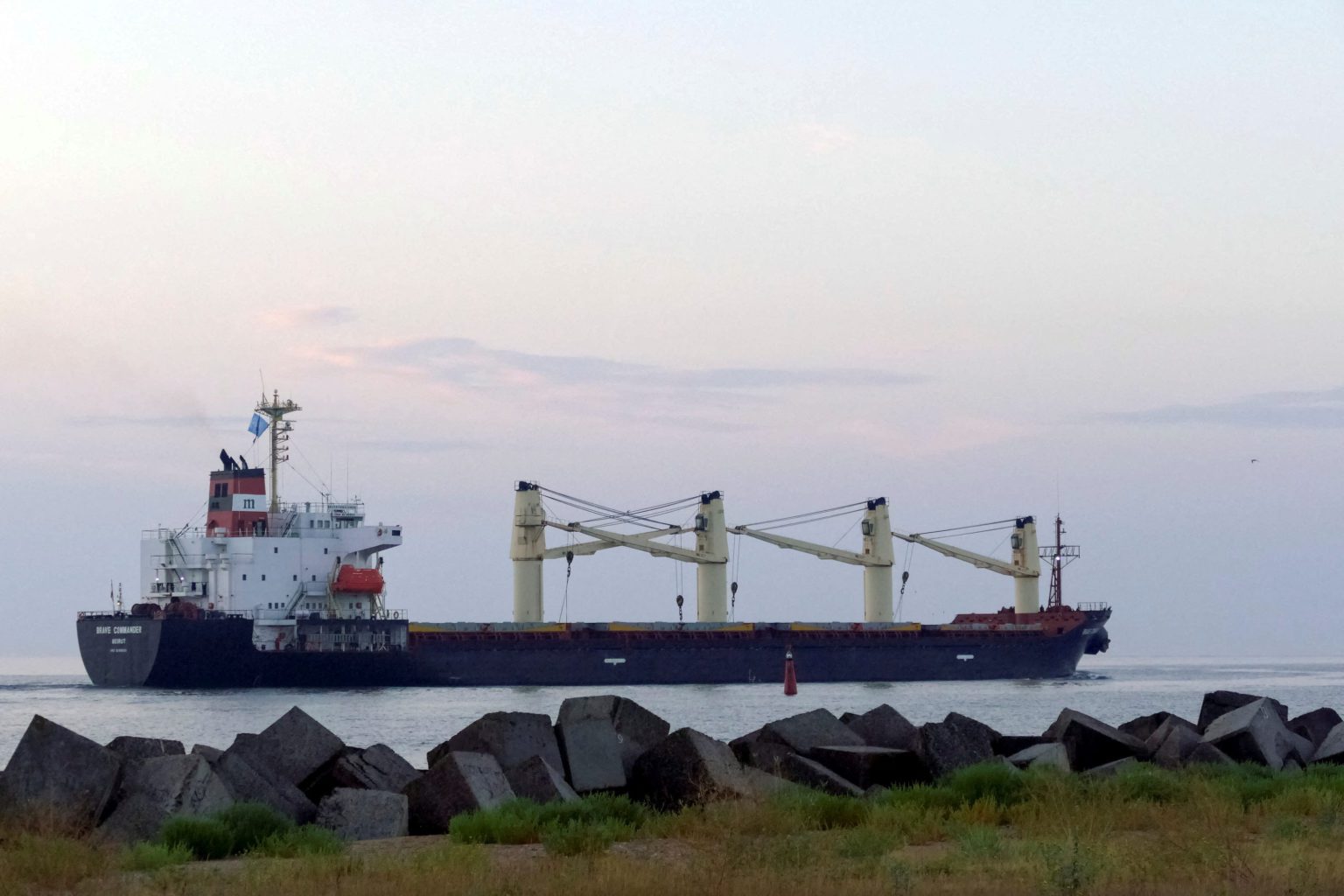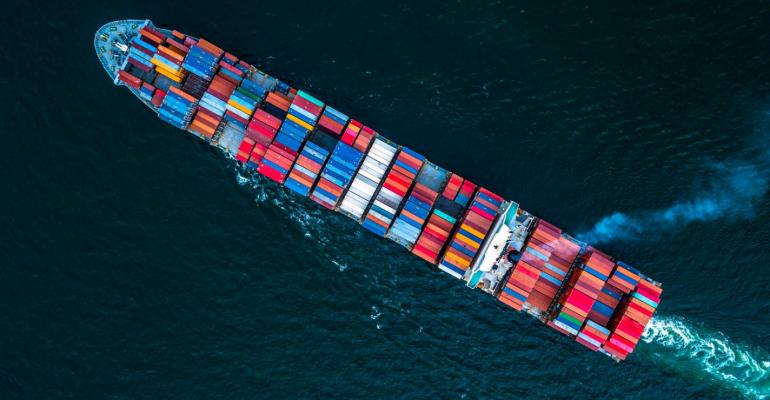As of February 2025, shipowners in the Western hemisphere have reportedly earned over US$6.3 billion from the sale of aging tankers, many of which have eventually joined the so-called “shadow fleet.”
Such vessels are often used to circumvent sanctions, particularly in transporting Russian oil outside the price cap mechanism. Indeed, on 23 June 2025, it was reported that for the first time, a Russian warship had openly escorted shadow fleet tankers through European waters.
This worrying trend of shadow fleet activity presents systemic risks for the global shipping industry and underscores the potential for shipbrokers and intermediaries to become unintentionally involved in transactions that support sanctioned activities.
Legal risks and enforcement warnings
In May 2024, the UK Government issued a stark warning: individuals involved in the sale or brokering of tankers destined for the shadow fleet could face criminal charges, including imprisonment. This was reinforced by a joint statement on 18 July 2024, from the UK, EU, US and other allied nations, urging shipbrokers, owners and managers to fulfil their sanctions compliance obligations. These obligations include preventing, detecting and reporting activities linked to the shadow fleet.
As widely reported at the time and more recently, UK authorities are actively investigating brokers, ship finance providers and intermediaries who facilitate the sale and purchase of ships to entities suspected of operating within the shadow fleet. The UK’s Office of Financial Sanctions Implementation (OFSI) has emphasized that ignorance is not a defense, and all intermediaries (including shipbrokers) must demonstrate proactive due diligence.
Expanding sanctions frameworks
Recent regulatory updates have significantly broadened the scope of sanctions:
- EU sanctions (May–June 2025): The EU’s 17th sanctions package added 189 vessels to its blacklist under Council Regulation (EU) No. 833/2014, banning port access, purchase and transfer, and financial services to these ships among other restrictions. The EU also expanded its criteria under Council Regulation (EU) No. 269/2014 to include individuals and entities facilitating ownership transfers or economic benefits to Russian interests.
- UK sanctions (May-June 2025): In May 2025, the UK aligned with the EU by sanctioning 18 additional ships linked to Russian oil exports and introduced whistleblower protection for reporting sanctions violations. Subsequently, on 17 June 2025, the UK tightened its sanctions on the shadow fleet by banning a further 20 ships and blacklisting 10 more individuals or entities involved in the maritime and energy sectors.
- US sanctions (May 2025): The proposed Sanctioning Russia Act of 2025 includes asset freezes and transaction bans on foreign entities supporting Russia’s energy and transport sectors. It also targets individuals knowingly supplying oil and energy products to sanctioned entities.
On 17 June 2025, fourteen European countries, together with the UK, issued a joint statement calling for increased efforts to tackle the shadow fleet. These countries committed to agreeing joint guidelines to ensure greater transparency across maritime operations. The participating countries have called on other countries to join this initiative.
This call to arms seems to have resonated with non-EU countries. On 17 June 2025, Canada announced new sanctions against Russia at the G7 summit. On 18 June 2025, Australia announced that it had imposed targeted sanctions on 60 vessels linked to Russia’s shadow fleet. This is reported to be the first time that Australia has imposed sanctions against the shadow fleet.
Other sanctions regimes
On 20 June 2025, the US imposed new sanctions on entities and individuals that the Office of Foreign Assets Control (OFAC) considers to be supporting Iran’s defense industry.
It also announced sanctions on entities and individuals that are believed to be generating revenue for the Houthis in Yemen, and vessels that are thought to be discharging oil and related derivatives to them.
Influential lobby groups
United Against Nuclear Iran (UANI) is a US-based lobby group whose influence stems in part from its leadership which includes former high-ranking US officials and intelligence figures such as Jeb Bush and former directors of Mossad. Through its intelligence-gathering efforts and high-profile public advocacy, UANI has played a significant role in shaping US sanctions policy. Its campaigns have contributed to the de-flagging of hundreds of vessels and the designation of over 100 tankers by the US.
Given this track record, it is prudent for brokers and maritime stakeholders to consult the vessel watchlist published by UANI as part of their due diligence. While not an official sanctions list, UANI’s designations often precede or influence formal US government action, making them a valuable early warning tool for assessing the sanctions exposure risk of a vessel. This recommendation is directed at brokers and operators not subject to the jurisdiction of the EU or the UK. Individuals and entities within the EU or UK are bound by their respective blocking statutes, which prohibit compliance with certain extraterritorial US sanctions.
UK and EU blocking statutes
Both the EU and the UK maintain blocking statutes. These are legal instruments designed to counteract the extraterritorial application of foreign sanctions, including those imposed by the US on Iran.
- Council Regulation (EC) No 2271/96 and the UK Protection of Trading Interests Act 1980 prohibit EU and UK persons from complying with certain US sanctions on Iran.
- This includes a prohibition on withdrawing from or refusing to enter a transaction solely on the basis that it may violate US sanctions.
- For example, EU or UK-based brokers cannot legally exit a transaction involving Iranian oil or vessels merely because of potential US sanctions exposure unless they obtain a specific authorization from the relevant authority.
As a result, brokers could be legally obliged under EU or UK law to proceed with a transaction, even if doing so might expose them to US enforcement actions or reputational risks. This underscores the importance of careful due diligence, legal risk assessment and, where necessary, seeking authorization or guidance from the relevant authorities.
Due diligence expectations for shipbrokers
With sanctions tightening, shipbrokers must implement enhanced due diligence to avoid facilitating transactions involving sanctioned parties or contributing to the shadow fleet.
Key red flags for shipbrokers include:
- New market entrants with no shipping history or unclear ultimate beneficial ownership (UBO).
- Limited information relating to source of funds and/or source of wealth, combined with a reluctance to respond to queries or provide supporting information.
- Older vessels (20+ years) sold at inflated prices, especially those previously earmarked for scrapping.
- Limited cooperation or a refusal to respond to standard due diligence checks.
- Use of shell companies or trusts with unclear UBOs, reluctance to provide payment details, use of crypto or third-party payments, buyers from high-risk jurisdictions, and vague end-use or trade route information.
Compliance and documentation
If a transaction is later flagged for sanctions evasion, the strongest defense for a shipbroker lies in a comprehensive and well-documented due diligence process. This may include:
- Screening counterparties against sanctions lists.
- Verifying ownership structures and end-use intentions.
- Assessing source of funds.
- Reviewing movements of common ownership vessels.
- Retaining records of communications and risk assessments.
- Seeking external legal advice.
In the current regulatory climate, compliance is not optional – it is a critical safeguard against legal liability, reputational damage, fines and criminal prosecution. With relatively small adjustments to “know your client” (KYC) and due diligence procedures, shipbrokers and intermediaries can not only protect themselves but also enhance their credibility, strengthen client relationships, and continue closing deals confidently in an ever-evolving political and maritime landscape.
Source: Hill Dickinson



